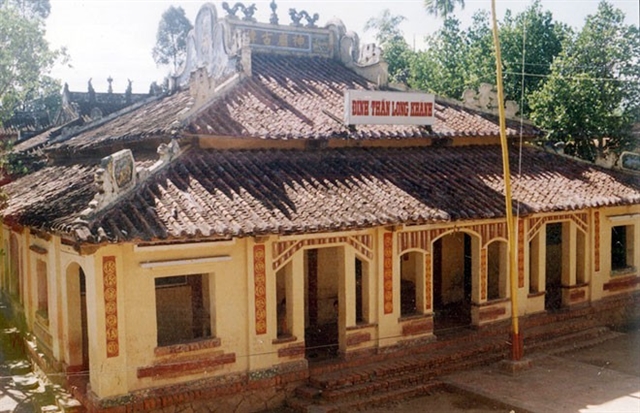Ancient communal houses in the southern province of Dong Thap would be included in new tours, according to local authorities.

There are nearly 1,000 communal houses in the province, four of which have been named National Relic Sites: Long Khanh communal house in Hong Ngu district, Tan Phu communal house in Chau Thanh district, Phu Huu communal house in Chau Thanh district and Dinh Yen communal house in Lap Vo district.
Nguyen Ngoc Thuong, Director of the Department of Culture, Sports and Tourism, said most of the communal houses in the southern region imitated the architecture of those in the north, which were built in the 16th century.
Communal houses host various community activities and are places for cultural exchanges between ethnic groups. They also serve as culture and education centres for locals, he said.
Thuong said the authorities had been looking at developing communal houses in modern times.
A trial tour will bring tourists to four typical communal houses including Vinh Phuoc (Sa Dec city), Dinh Yen (Lap Vo district), Vinh Thoi (Lai Vung district) and the communal house at Thong Binh Intersection (Tan Hong district) besides existing destinations in the province.
Thuong said the province also planned to restore some of the houses to restore traditional customs, ceremonies, antiques and folk arts.
The province has many famous landmarks such as the Nguyen Sinh Sac (father of President Ho) Relic Site, Tram Chim (Bird Sanctuary) tourist area, Xeo Quyt relic area, Gao Giong eco-tourism area, Dong Sen Thap Muoi (Lotus Field) tourist area and Sa Dec flower village.
Tourists can also visit Chua To (Ancestor Pagoda) in Cao Lanh district, Phu My Islet in Thanh Binh district, Dinh Yen mat weaving village in Lao Vo district, Ba Dai boat-building village in Lai Vung District and Long Khanh scarf weaving village in Hong Ngu district.